Guinea pigs, also known as cavies, are cherished pets admired for their gentle temperament and endearing squeaks. These delightful creatures, while known for their calm demeanor, possess a surprisingly diverse set of vocalizations. From squeaks to wheeks to chirps, each sound they make carries meaning and can offer insight into their emotions and needs.
In this article, we will explore the fascinating world of guinea pig vocalizations, examining the different sounds they produce, what these noises convey, and the possible reasons behind them. Understanding these sounds will help you strengthen your relationship with your guinea pig and ensure you meet their needs effectively.
READ MORE:
The Squeak of Concern: Understanding Guinea Pig Wheezing
Guinea Pig Ear Infections: A Complete Guide
Space Requirements for Guinea Pigs: A Comprehensive Guide
The Hairless Guinea Pig: A Unique and Adorable Breed
Contents
Understanding Guinea Pig Vocalizations: What Do They Mean?
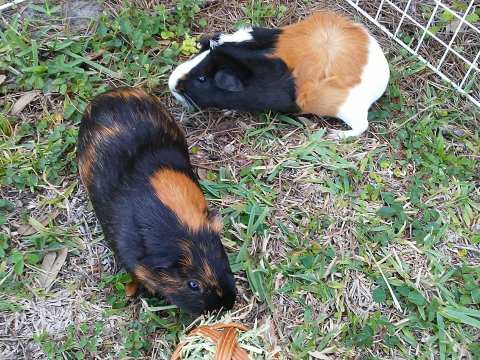
Before diving into the specifics of guinea pig sounds, it’s essential to understand the basics of their communication methods. Guinea pigs primarily communicate through sounds, but they also use body language and scent marking to convey messages. With a wide range of vocalizations, guinea pigs express emotions, communicate basic needs like hunger or thirst, and alert others to potential dangers.
Guinea pig vocalizations can vary depending on the individual, breed, and situation. While no single sound applies universally to all guinea pigs, understanding the typical meanings behind these sounds will help you better communicate with your pet. Below are some of the most common guinea pig vocalizations and their likely interpretations:
Squeaks
The high-pitched, short squeak is perhaps the most recognizable sound associated with guinea pigs. This noise can express a variety of emotions, such as happiness, excitement, or contentment. You may hear this sound when your guinea pig is playing, eating, or interacting with their favorite person. It can also serve as a greeting between guinea pigs.
However, low-pitched, drawn-out squeaks can signal distress or discomfort. These may be heard when a guinea pig feels threatened, hurt, or stressed. If a guinea pig squeaks in this way during handling, it may be expressing discomfort or anxiety.
Wheeking
Wheeking is a repetitive, high-pitched noise, typically made when a guinea pig is excited, especially when they anticipate food. It is longer and more intense than a regular squeak. You may hear your guinea pig wheeking when they see you bringing food, hear the rustling of their food bowl, or when they are seeking attention for play or cuddles.
Chirps
Chirps are rapid, short noises that guinea pigs make when they are exploring or investigating their surroundings. These sounds convey curiosity and excitement, and you might hear them as guinea pigs explore new toys or unfamiliar environments. Chirps can also be a sign of friendly interaction with other guinea pigs or humans.
Why Understanding Guinea Pig Sounds Matters
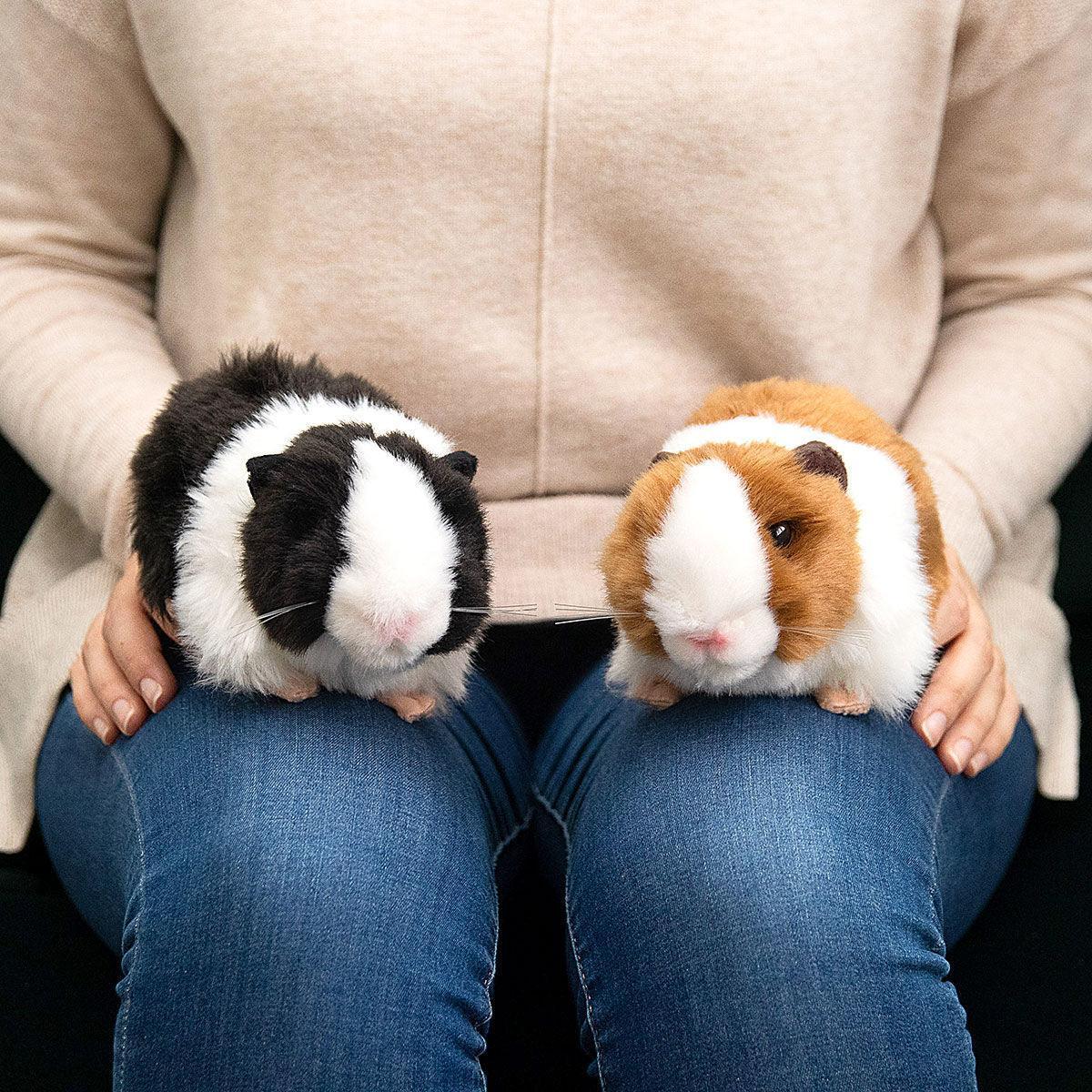
Being attuned to your guinea pig’s vocalizations can significantly improve the way you communicate with your pet. Recognizing their sounds can enhance your relationship, help you address their needs, and even improve their overall care. Additionally, understanding their sounds allows you to spot potential health issues early. For example, if your guinea pig suddenly begins squeaking excessively, it may indicate a health problem that requires veterinary attention.
Guinea pig sounds can also provide important clues about their emotional state, such as whether they are happy, scared, or stressed. By listening to your guinea pig’s vocalizations, you can better gauge their mood and respond appropriately.
Guinea Pig Communication: More Than Just Sounds
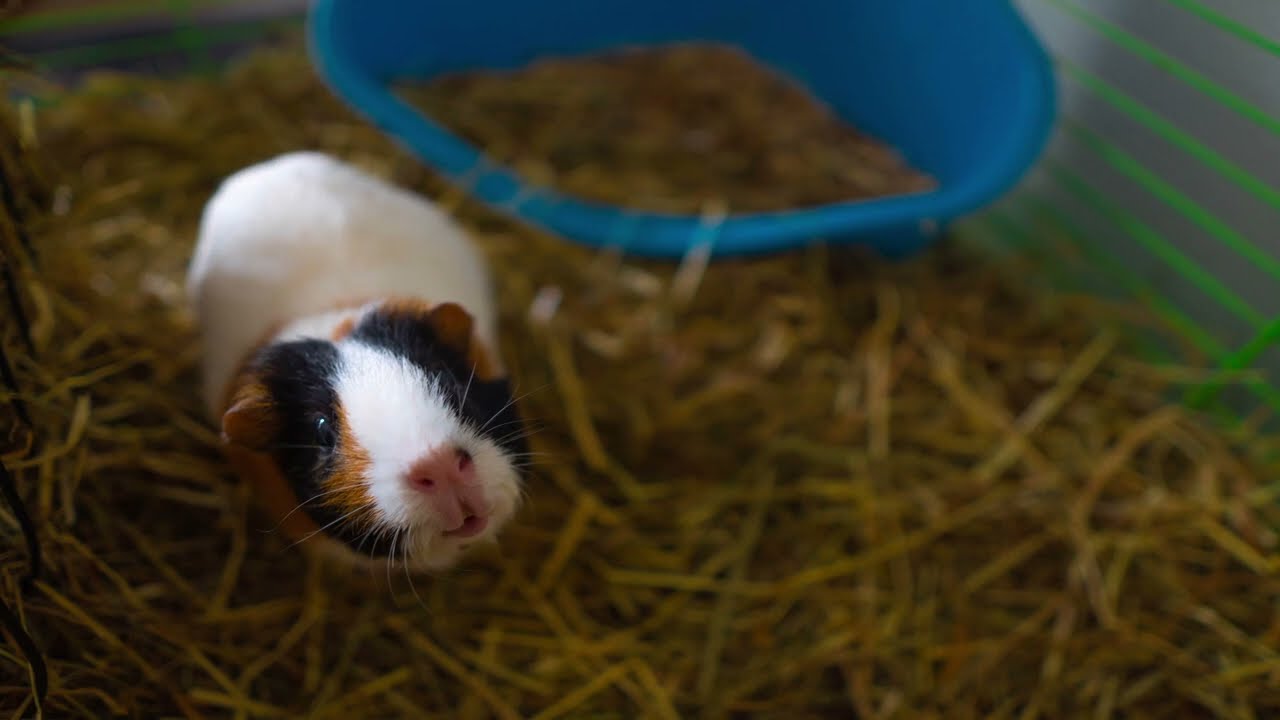
While vocalizations are a significant part of how guinea pigs communicate, they also rely on body language and scents to express themselves. Let’s explore some of these non-verbal forms of communication.
Body Language
Guinea pigs use a wide variety of body language to communicate with each other and with humans. Here are some common behaviors and what they typically mean:
- Popcorning: This is when a guinea pig jumps or hops in excitement, often accompanied by squeaks. It’s a clear sign of extreme happiness or excitement.
- Teeth Chattering: When guinea pigs chatter their teeth, it usually signals fear, aggression, or discomfort. They may be warning others to back off.
- Biting or Nipping: While guinea pigs may nip or bite to show curiosity or affection, excessive biting can indicate fear or stress.
- Hiding: If your guinea pig is spending more time than usual hiding, it may be feeling anxious or unsafe in their environment.
- Nose Wiggling: This common behavior is a way guinea pigs explore their surroundings and detect smells.
Scents
In addition to vocalizations and body language, guinea pigs communicate through scents. They have scent glands under their chin that they use to mark their territory. Male guinea pigs, in particular, are known for their scent-marking behaviors, often engaging in scent wars to assert dominance.
By understanding your guinea pig’s scent-marking behavior, you can gain insights into their emotional state and social dynamics. For instance, excessive scent marking may indicate anxiety or stress, particularly in a new or unfamiliar environment.
Common Guinea Pig Sounds and Their Meanings
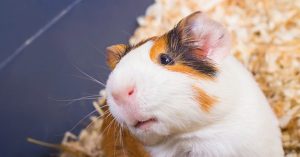
Let’s now take a closer look at some of the more common vocalizations you might hear from your guinea pig and their possible meanings:
Whistling
Whistling is a sound that guinea pigs sometimes make when they are excited or happy. It could occur when they see you, hear a noise associated with food or playtime, or simply when they’re exploring. However, if whistling is constant or accompanied by signs of stress (such as hiding or teeth chattering), it may indicate anxiety or discomfort.
Purring
Guinea pigs also purr, and it’s typically a sign of contentment. The sound is soft and rumbling, much like a cat’s purring. You may hear it when they are being petted, snuggling, or relaxing. It can also serve as reassurance for another guinea pig who may be anxious or unwell.
Teeth Chattering
Teeth chattering is often a sign that your guinea pig feels threatened or uncomfortable. It may also be an indication of fear or stress. If this behavior is frequent, it’s essential to assess your guinea pig’s environment and identify potential sources of anxiety or discomfort.
When to Worry: Unusual or Excessive Noises
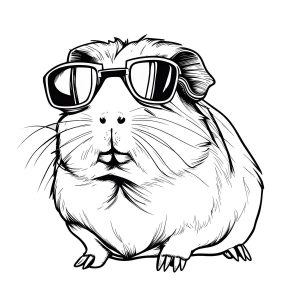
Although vocalizations are a normal part of guinea pig behavior, it’s essential to pay attention to any changes or unusual sounds. If your guinea pig begins making unfamiliar noises, it could indicate an underlying health issue. Common causes of increased vocalization include:
- Pain: Illness or injury can cause a guinea pig to vocalize more frequently, especially if they are in discomfort.
- Stress or Anxiety: Changes in environment, introduction of new pets, or social stressors can make guinea pigs anxious and lead to more vocalizations.
- Health Issues: Respiratory infections, digestive problems, and other health conditions can alter a guinea pig’s vocal patterns, such as wheezing or coughing.
If you notice any significant changes in your guinea pig’s vocal behavior, it’s a good idea to consult a veterinarian to rule out any health concerns.
Conclusion
Guinea pigs are social creatures that communicate through a variety of sounds, body language, and scents. By understanding their vocalizations and non-verbal cues, you can strengthen your bond with your pet and ensure they are happy, healthy, and well-cared-for. Whether they are squeaking with excitement, chirping out of curiosity, or purring with contentment, your guinea pig’s sounds are an essential part of their personality and communication style. By learning to interpret these vocalizations, you can create a deeper connection and a more fulfilling relationship with your cavy companion. Remember, every guinea pig is unique, so take the time to understand their individual sounds and what they mean.
